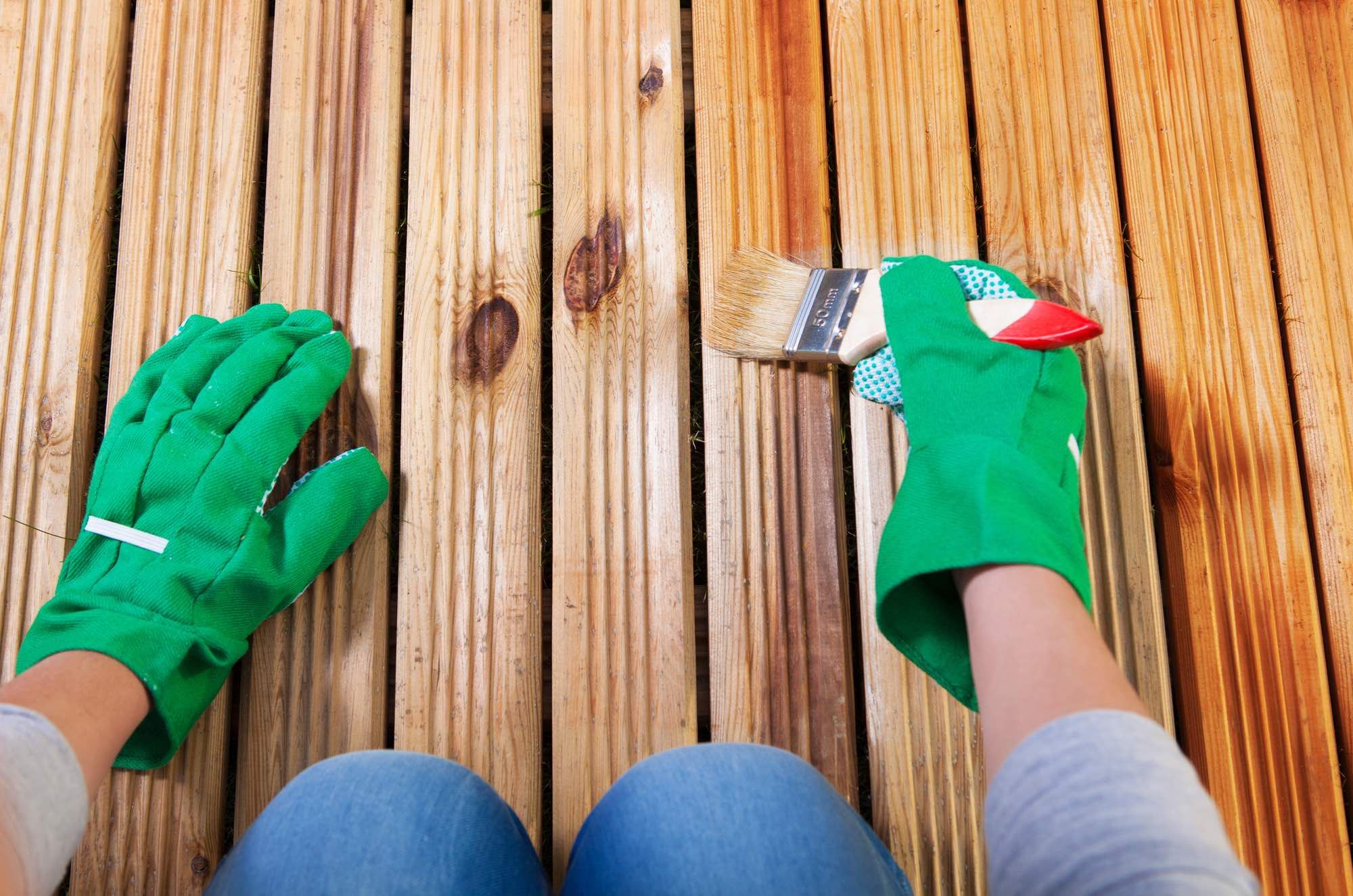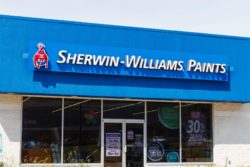
Sherwin-Williams has asked an Ohio federal judge to throw out a class action lawsuit alleging their SuperDeck and Duckback deck stain is prone to peeling.
In their motion to dismiss the class action lawsuit, Sherwin-Williams says the plaintiffs admitted to only use one of the 16 products named in the lawsuit: The SuperDeck IR Reflective Exterior Semi-Solid Color Waterborne Stain.
Sherwin-Williams explains that the plaintiffs’ complaint shows only vague, formulaic and conclusory statements to support their theory that different products with different formulations can share a common defect.
In addition, Sherwin-Williams states that by only using one of the 16 products at issue, the plaintiffs are alleging a defect in products to which they don’t know anything about.
The plaintiffs “resort to highly conjectural, improbable theorizing that different Products with unique designs that utilize different raw materials could somehow share an unspecified design defect,” the Sherwin-Williams wood deck stain motion to dismiss goes on to say.
The manufacturer says the class action complaint should be thrown out in its entirety because of the plaintiffs abject failure to present claims which are plausible on their face.
The Sherman-Williams wood deck stain class action lawsuit was filed in April 2019 by Eric Rusnock, Andrew Nye and Rose Nye who claim the paint company’s SuperDeck and Duckback products do not perform as advertised and that the defendant’s claims regarding the products’ quality, longevity, and durability are false, deceptive, and misleading.
Rusnock and his fellow plaintiffs say the products at issue in this class action lawsuit routinely crack, chip, peel, mold, and otherwise fail within a short period of time after they are applied. They say the products are not properly designed to achieve the outcomes that they purport to achieve because the products are film-forming rather than penetrative.
In addition, the Sherwin-Williams deck stain class action lawsuit states that the defendant’s instructions for applying the products are not adequate for consumers with damaged decks because they do not instruct the consumers to sand the deck first.
“Defendants knew or should have known of the Products’ defects and inability to meet Defendants’ claims prior to placing the products in the stream of commerce because it is common knowledge in the industry that coatings that are easily susceptible to cracking and peeling in a short period of time are not suitable for decking and could not have lived up to Defendants’ claims,” the Sherwin-Williams wood deck stain class action says.
The Sherwin-Williams deck stain class action lawsuit also states that even though they had knowledge of the defects, the defendants continue to sell, market and warrant the deck stain as a premium product that will live up to the defendant’s claims.
Rusnok says Sherwin-Williams failed to inform customers that the products chip, peel, flake, and otherwise fail to achieve their intended purpose after a short period of time.
The plaintiff states that these omissions are material because customers who purchase these types of products expect that the coatings will be durable and last for an extended period of time.
The consumers argue that if they knew the Sherwin-Williams wood deck stain had defects and that they could not provide the claimed benefits, they would not have purchased the products or would have paid substantially less for them.
“Defendants had no intention of honoring their warranties and concealed this fact from customers in order to induce customers into purchasing the Products with a false belief that they would be protected from a product failure,” the Sherwin-Williams wood deck stain class action lawsuit says.

In addition, the motion to dismiss points out that the complaint does not mention what Sherwin-Williams supposedly “claimed” as to any of the allegations in the class action lawsuit.
The plaintiffs also fail to allege that they provided pre-suit notice of a purported breach of warranty and allegations about different third-party complaints to not meet the pre-suit notice requirement.
“The Complaint is devoid of any detail setting forth specific, substantive statements and claims which could be construed to have become the ‘basis of the bargain,’” the Shewin-Williams deck stain motion to dismiss says.
Did you purchase Sherwin-Williams SuperDeck or Duckback products and discover they do not work as advertised? Let us know in the comments section below.
The plaintiffs are represented by Andrew Baker of The Baker Law Group, Charles E. Shaffer and Nicholas J. Elia of Levin Sedran & Berman LLP, and D. Aaron Rihn of Robert Pierce & Associates.
The Sherwin-Williams Deck Stain Class Action Lawsuit is Rusnock, et al. v. The Sherwin-Williams Company, et al., Case No. 1:19-cv-00908-DAP, in the U.S. District Court for the Northern District of Ohio.
ATTORNEY ADVERTISING
Top Class Actions is a Proud Member of the American Bar Association
LEGAL INFORMATION IS NOT LEGAL ADVICE
Top Class Actions Legal Statement
©2008 – 2026 Top Class Actions® LLC
Various Trademarks held by their respective owners
This website is not intended for viewing or usage by European Union citizens.















48 thoughts onSherwin-Williams Wants Wood Deck Stain Class Action Tossed
We had the same unacceptable outcome after using this stain on a brand new deck. Horrible product. Failed miserably in one year.
This stain is fraudulent in it what it purports to do. It has literally destroyed my 10K plus deck and continues to peel….
We have been dealing this problem for three years. Stained our decks with sherwin Williams super deck stain. It’s been peeling ever since. Funny thing though, it is fine under the porch roof. If exposed to rain especially the drip edges it peels. The store said we had to strip it off. I tried to but stripper didn’t get down into the grain of the wood. I gave up. Is this claim still active?